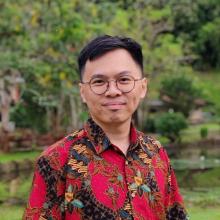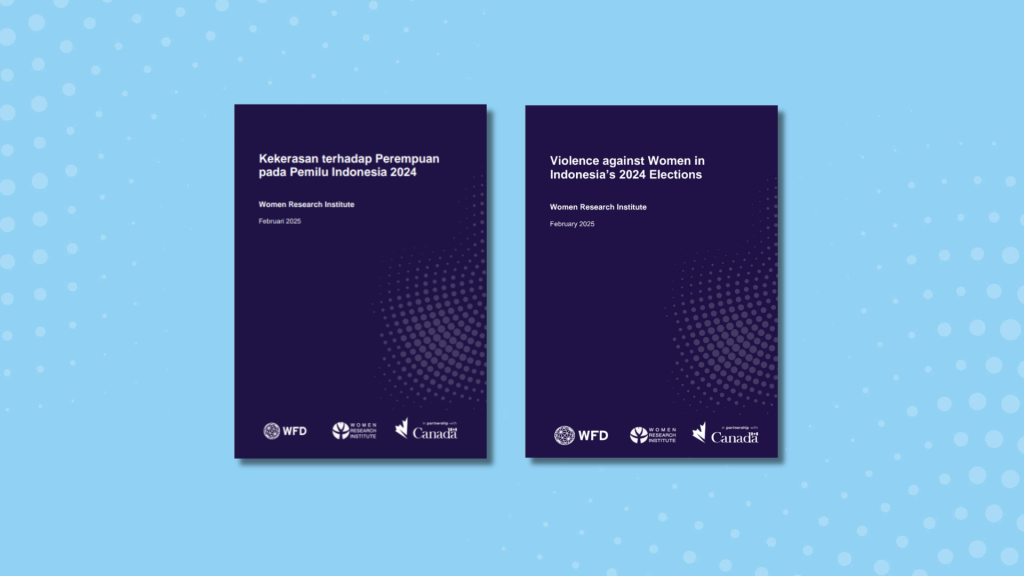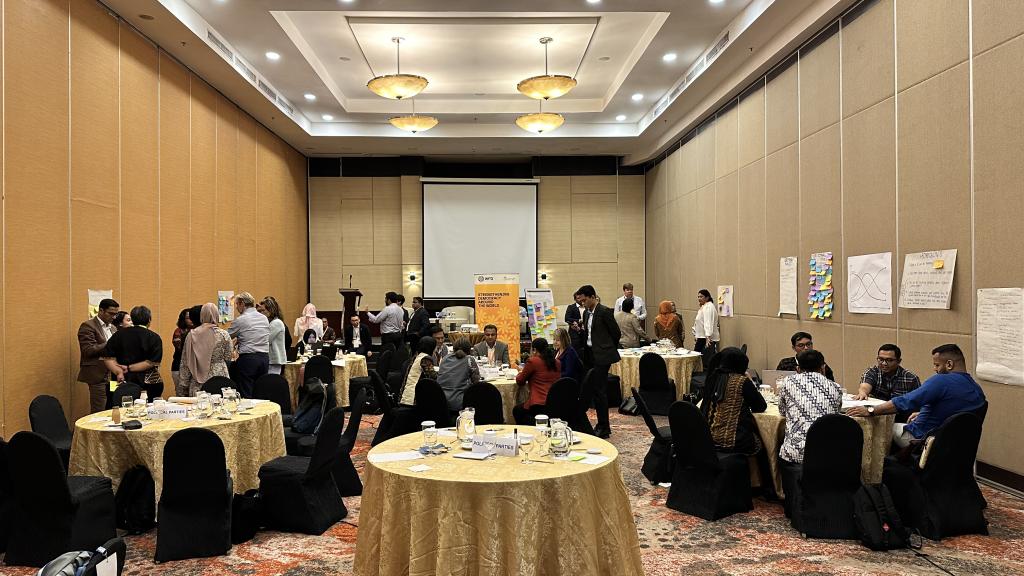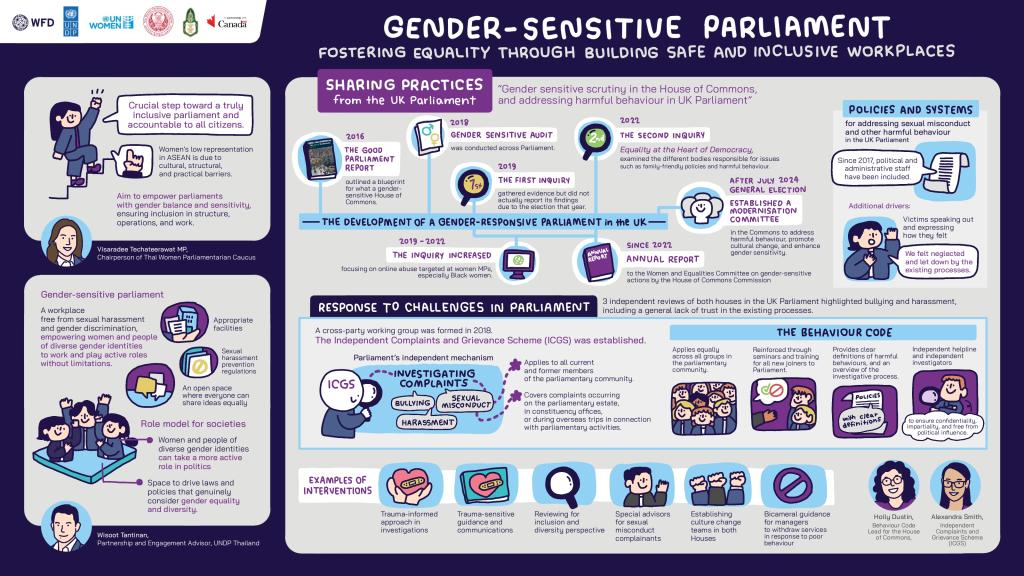Building a safer space for women in politics with male allies
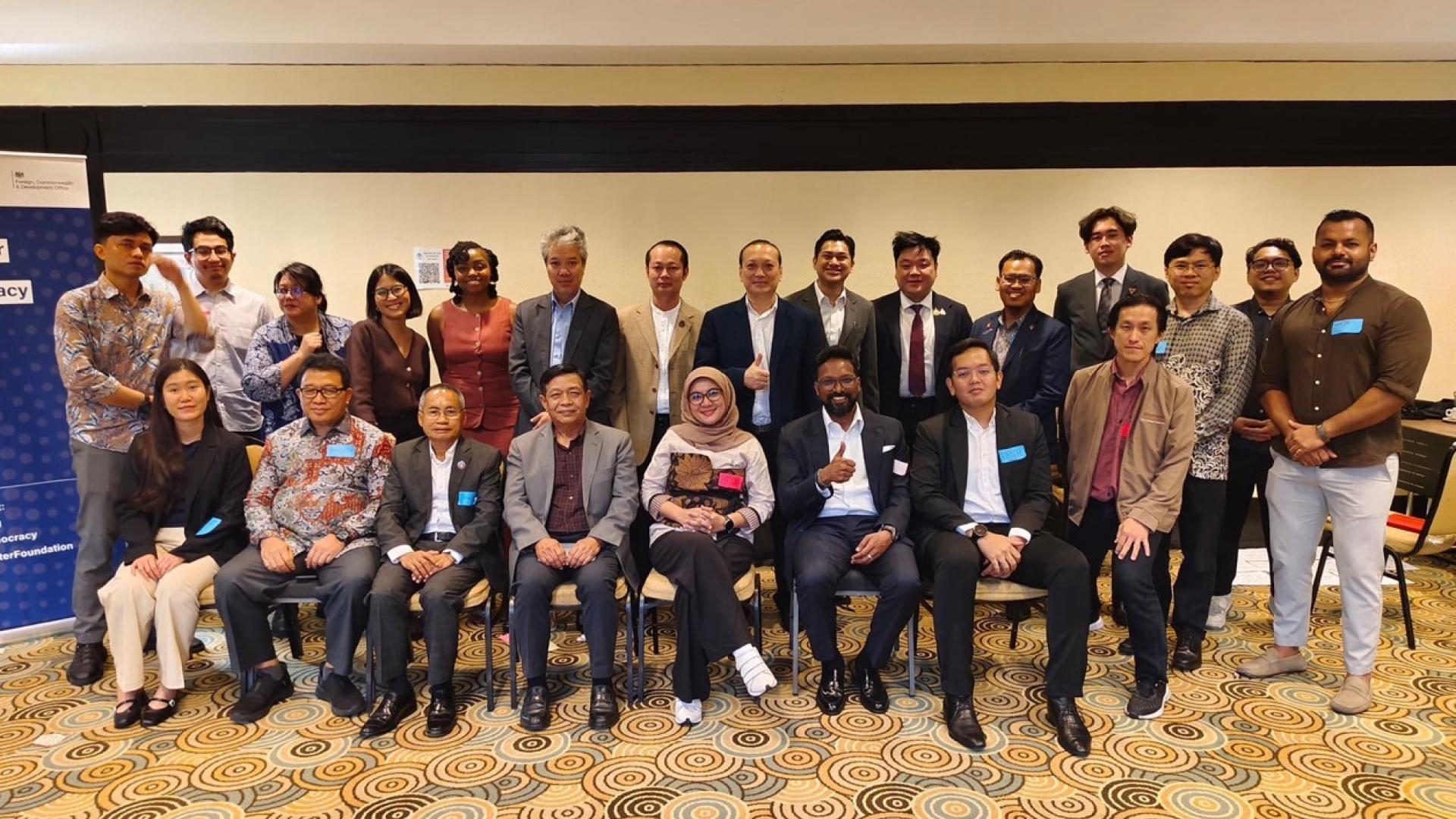
Chompunut (Air) Chalieobun
In politics, silence in the face of violence is complicity. On 27 August 2025, Westminster Foundation for Democracy (WFD) convened a regional workshop in Kuala Lumpur to challenge that silence by bringing male political actors to the centre of the conversation on violence against women in politics (VAWP). Political leaders and researchers from Indonesia, Laos, Malaysia, and Thailand gathered to reflect on the realities of VAWP and reckon with their own roles in addressing it. Through open dialogue, candid reflections, and shared commitments, the workshop underscored that building safer and more inclusive political spaces is not the sole responsibility of women – it requires men to step up as allies.
As a result of the workshop, one of the political parties in Thailand announced its support to enhance women’s political participation and leadership in the upcoming election and pledged to take action against online violence targeting women.
This initiative builds on WFD’s VAWP methodology, co-created with women politicians a year ago in Indonesia. As part of the methodology’s cyclical design, the Kuala Lumpur session focused on the “reflecting” stage, providing participants with an opportunity to assess how institutions can better identify VAWP risks, understand underlying patterns, and strengthen mechanisms for prevention and accountability.
Facilitated by WFD's Head of Practice on Inclusion, Cecillia Makonyola, and supported by Senior Adviser (Programmes), Sanje Vignaraja, the workshop was highly participatory, encouraging open dialogue and localisation of the methodology within different ASEAN contexts.
Ahead of the workshop, High Commissioner of Canada to Malaysia, Jodi Robinson, joined male political leaders and researchers to emphasise the strong Canada–ASEAN partnership and support for women’s political leadership. She highlighted the crucial role of male allies in advancing inclusive politics and reaffirmed Canada’s commitment to gender-responsive democracy through the Global Affairs Canada Promoting and Protecting Democracy Fund (Pro-Dem Fund), which funds the programme.
Tackling violence is a shared responsibility
Participants shared reflections from their own experiences and role-played scenarios inspired by real-life uncomfortable experiences of women politicians across the region to raise awareness of VAWP. They acknowledged the profound impact of VAWP on women’s leadership and how non-inclusive politics disproportionately affects young political figures across all genders. This reinforced a collective understanding that tackling political violence requires shared responsibility and solidarity, not only among women but also among male allies committed to democratic values.
The discussions also highlighted that violence against women in politics is not a series of isolated incidents, but a systemic problem woven into political culture and institutions. Tackling it, therefore, requires more than ad hoc responses; it demands structural change. The male political actors agreed that creating safer political spaces for women must involve institutional reforms, such as embedding gender-sensitive practices within party operations, strengthening accountability mechanisms, and investing in continuous gender-awareness training for political actors at every level. Only by addressing these underlying structures can politics evolve into a truly inclusive arena where women can lead and participate without fear.
The workshop also sparked tangible commitments. Immediately afterwards, Alongkorn Ponlaboot, Vice Chairperson of the Strategy Committee in Thailand’s Democrat Party, publicly announced that his party would support women’s political participation and leadership in the upcoming election. He further pledged to strengthen measures against online violence targeting women politicians, signaling a concrete step towards change.
By creating a safe space for reflection, sharing, and allyship, this cross-country initiative underscored the power of participatory, regional approaches. It highlighted the importance of engaging men as partners in advancing inclusive governance and sustaining regional momentum to ensure that politics becomes a safer and more equitable space for all.
